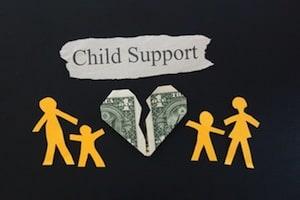of Experience
Child Support
Child Support Lawyers In Bergen County, NJ

Whether you’ll be receiving child support or paying child support, it can be difficult to reach agreement with your soon-to-be-former spouse about what’s needed and what’s “fair”.
Fortunately, New Jersey Law provides detailed guidelines for calculating child support.
The New Jersey Child Support Guidelines are based on the following principles:
- Both parents have the continuous duty to support their child.
- Children are entitled to share in the current income of both parents.
- Children of divorced parents should have the same opportunities available to children in intact families with parents of similar financial means.
- Children should not be the economic victims of divorce or of being born out-of-wedlock.
- Children should not be forced to live in poverty because of family disruption.
The Child Support Guidelines are to be used as a “rebuttable presumption” to establish and modify child support orders.This means that New Jersey courts should apply the Guidelines unless there are circumstances that would make applying the Guidelines inappropriate.
It’s difficult to determine the actual cost of raising a child because many goods and services are shared by both adults and children.For example both adults and children may benefit from the family’s home, car, internet connection, or pot of spaghetti.
When a family’s expenses increase, total spending on children tends to also increase.However, the percent of family income spent on children tends to decrease as income rises.
The awards in the New Jersey Child Support schedules are based on the average amounts that intact families spend on their children for things like housing, clothes, transportation, entertainment, and certain healthcare costs not covered by insurance.
In addition to the basic child support obligation (that applies to all families) certain expenses may be added if actually incurred by a family.These additional expenses include child care, health insurance for the child, recurring unreimbursed health care expenses of more than $250 per child per year, and other predictable and recurring expenses such as for private schools, special needs, and visitation transportation.
The basic child support obligation may also be adjusted downward if a parent has other legal dependents or multiple family obligations, or if children receive government benefits.
The New Jersey Guidelines are based on the combined net income of the parents.“Net income” is calculated by taking gross income and subtracting taxes, mandatory union dues and retirement deductions, and amounts for previously ordered child support.
Sometimes courts will calculate income based on what a parent could earn rather than on what a parent is actually earning.This happens when a court finds that a parent is voluntarily unemployed or under-employed.
Child support can also be adjusted based on the amount of time a child spends with each parent.
Additional adjustments are made in extreme cases when parents have net income below the US poverty line or above $187,200 per year.
In the court’s discretion, many other factors may also be considered in making adjustments to a child support award.
Parents can estimate the amount of support that a New Jersey court might order by using the worksheets provided by the state.
If you have questions about child support, we invite you to contact our Hackensack office for a free initial consultation with one of our experienced New Jersey family lawyers.
Call us today at (201) 345-5907 or send us an e-mail and let us help you with your New Jersey child support issue.




